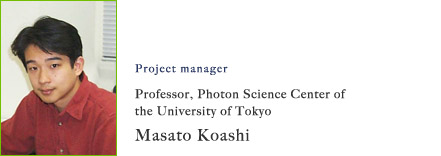- Proposed Research D02:
- Light-based multi-qubit quantum control

We will perform theoretical and experimental studies on the quantum operations in communication protocols where the light plays an essential role. Proof-of-principle experiments using light will also be conducted for multi-qubit quantum operations, which will be useful for other physical systems. The advantages and disadvantages of light will be quantitatively studied, and possibility of complementary combination with other physical systems will be theoretically investigated.
Among physical systems, light is the only system that can be used to transfer a quantum state remotely and is considered to play an essential role in quantum information processing networks. If the effect of loss is separable by postselection, optical systems are less susceptible to complex decoherence, and precise measurements feasible for light allow advanced quantum control and detection. With the current level of technology, the control and detection of multi-qubit quantum states is easier in optical systems than in other physical systems. In this research, with an understanding of these characteristics, we will perform theoretical and experimental studies focusing on quantum control in communications in which light plays an essential role, and on proof-of-principle optical experiments aimed at highly versatile multi-qubit quantum control. More specifically, we will study multiparty quantum communication protocols and state protection against decoherence using quantum effects, and perform one-way quantum computation with entangled multi-qubit quantum states such as a cluster state using 4 to 8 qubits.
In the theoretical studies, we will also cover other physical systems that are dealt within this research project. In the area of quantum control in communications, we will explore the possibility of higher-level quantum control by combining optical systems with other systems that are less susceptible to the effects of loss than light. In the area of versatile multi-qubit quantum control, we will study specific conditions required in exporting the quantum control methods realized in proof-of-principle optical experiments to other physical systems, and consider possibilities of further improvements by invoking advantages characteristic to each of the physical systems. For these studies, we need detailed information on advances in quantum control technology for other physical systems. The feedback of the knowledge gained in the other research projects is essential in this regard, which requires close collaboration with other research projects. These developments are expected to contribute to advances in fundamental science in terms of unified quantitative understanding of characteristics for various physical systems, as well as to engineering science for achieving universal quantum control through complementary combinations of various physical systems.
Details : 「Publications」














